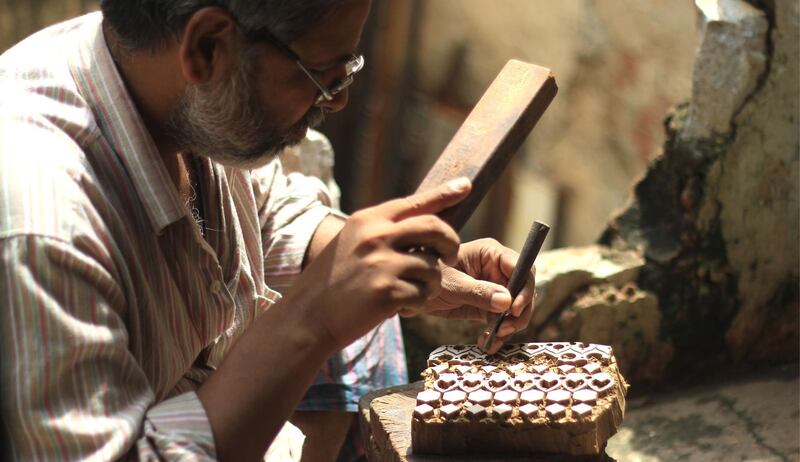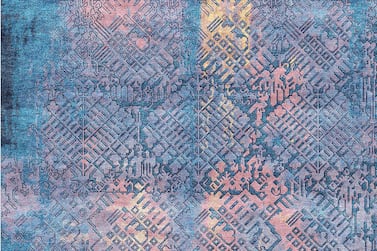For generations, Sonu Sharma's family of marble workers in Jaipur crafted the same vases, elephants, mortars, pestles and clocks as their forebears. They used the same designs, were paid the same low prices and lived the same eked-out existence.
Growing up in the alleys of the old quarter of the Pink City, as Jaipur is known because of its sandstone buildings, Sharma knew he was expected to follow suit, but wondered how he would live on so little.
“At times, I thought I’d be better off as a taxi driver or a factory worker,” says Sharma, 30, sitting in his tiny shop surrounded by white marble artefacts.
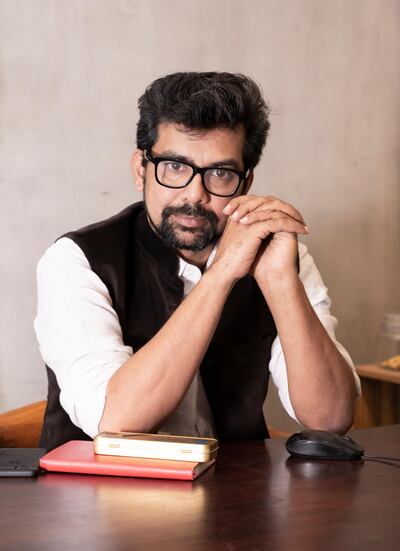
A chance meeting 10 years ago with one of India's leading designers, Ayush Kasliwal, put Sharma on a totally new path. Kasliwal gave him new contemporary designs to follow, for lamps, candle holders and vases, which are now exported to famous stores such as The Conran Shop, Crate and Barrel and Williams-Sonoma.
Sharma picks up a small curved unfinished lota (pot). "Ayush pushed me to get this as thin as possible, thinner than I had ever imagined. Now, when a tea light is placed inside and lit, it makes the gold leaf patterns on the outside glow," he says.
Before he began working with Kasliwal, Sharma, his father and elder brother worked the marble on their lathe according to intuition and tradition.
“Ayush gave us drawings to follow with precise measurements and instructions. I had never worked with drawings. It took me time to understand them, but now I realise how important they are to get the right finished product every time,” he says.
Sharma is only one of the 4,000-odd artisans in Jaipur and elsewhere in India whose precious skills have been saved from near-certain extinction by Kasliwal, the most prominent among a group of new designers in the city who have combined India's rich craft tradition with a modern sensibility.
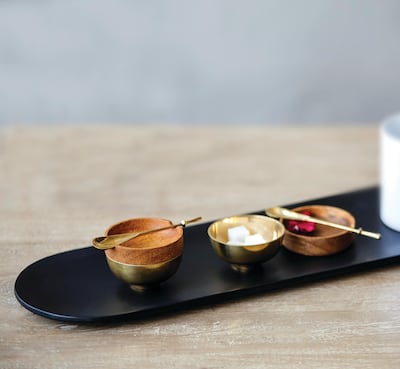
Rajasthan, of which Jaipur is the capital, is known for its beautiful and varied crafts in gems, textiles, stone, brass, wood, leather and metals. But artisans used to churn out the same old items, unaware that they needed to upgrade their designs to match a modern aesthetic. Kasliwal and his architect wife, Geetanjali, now marry these crafts with contemporary sensibilities to create world-class products with a difference.
A furniture design graduate from Ahmedabad’s National Institute of Design, the award-winning Kasliwal is prolific. A visit to his studio, AnanTaya, in Jaipur provides a visual feast of lighting, tables, chairs, lamps, vases, glassware, ceramics and papier mache pieces.

Kasliwal’s awards include the Lexus Design Award in 2019, Pool magazine's Best Furniture Design Studio of India in 2016 and Messe Frankfurt's Interior Lifestyle Award in 2015. His magic lies in the twist he gives to old and sometimes very ordinary Indian objects. For example, he takes a traditional boring tiffin box made of steel and crafts it instead out of wood. You end up with an elegantly carved creation topped with a finial. The design is based on the bhiksha patra, a vessel used by Jain priests as an alms bowl.
Over the years, Kasliwal has come to understand the artisans he works with, and has built solid relationships based on his respect for their creativity and an understanding of their techniques.
"You need trust and transparency. Trust in the sense that I need to understand their techniques and respect their creativity. Transparency in the sense that I tell them upfront that I am going to buy from them at 100 rupees (Dh5) and sell at 300 rupees, and ask them if they are OK with it," Kasliwal says.
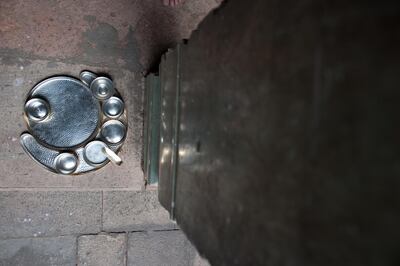
The artisans understand what he, as a designer, brings to the table. Not too far from Sharma’s workshop, in Kishanpole Bazar, wood artisan Sabir Ahmed speaks of how initially he struggled to understand why Kasliwal wanted him to fashion a product in a certain way.
“He used to sit on the floor for hours explaining something to me until I got it. His designs have broadened my skills. He pushes me to keep trying something new. He pushes me to improvise. He’s always giving me new designs, which makes it fun,” says Ahmed, whose family have worked with wood for as long as anyone can remember.
Ahmed and other artisans are now accustomed to Kasliwal’s rigorous quality standards, precision and the strict injunction to follow his drawings.
“Sometimes I end up giving maths and geometry lessons to explain how something has to be made,” says Kasliwal. “I expect a lot from them. I am staking my name, capital and brand name on their work, so it has to work both ways.”
The artisans now earn a much better living than they used to, thanks to more customers and orders, courtesy of Kasliwal. Sharma's tiny workshop proved too small for Kasliwal's orders so he has opened a larger one outside Jaipur that employs five workers. Sharma makes enough to support his loved ones comfortably while retaining the family tradition.
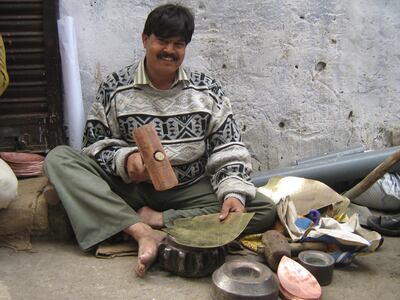
But some challenges remain. The lack of working capital, for one, which means that Kasliwal can sometimes only give small orders. "If I give them a large order, they haven't got the capital to fulfil it. Sometimes they spend the advance I give for an order on a wedding or buying a cow so they can't deliver. But they take another order to finish the previous one and end up in a debt cycle," Kasliwal says.
Technology has made some things easier. Kasliwal can pay artisans digitally. Or he can send a design to an artisan in a far-off place using WhatsApp. Language barriers can be overcome with WhatsApp, too. Kasliwal will send an audio message in Hindi, and the artisan who only speaks their local language can get a Hindi speaker to translate it for them.
Kasliwal believes that for India’s crafts to survive, many things need to happen but first and foremost, investment is needed to enable craftsmen to work on a larger scale.
Many crafts involve expensive machines and complicated processes. Wood has to be seasoned and made termite-free; metals have to be welded and polished. "I don't see a conflict between industrial processes and craftsmanship," he says. "They need to work together. If a factory can treat wood and metal on a large scale, that's fine. It frees the craftsman to focus more on creativity."
Unsurprisingly, the coronavirus pandemic and resulting lockdowns have wreaked havoc on a flourishing business. Sales have dropped, inventories lie unsold and bustling workshops are quiet. Although Kasliwal has not cancelled any of the orders that he has given to the artisans, he has raised very few new ones as a result of the current uncertainty.
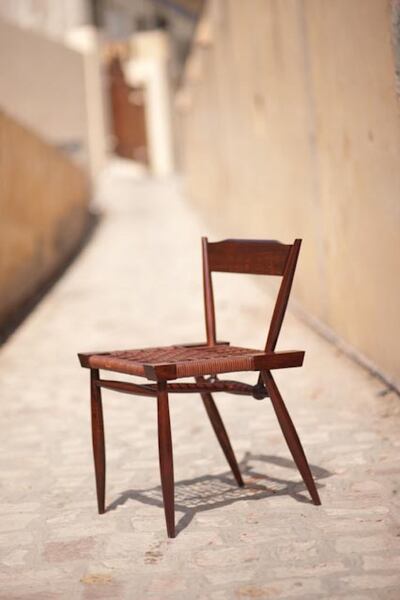
He is pushing online sales because many people are not yet prepared to go out to shops. “We are using this time to focus on developing new products so that, as the markets open, we will have something new to offer. This also allows us to maintain some flow of money to our artisans,” he says.
He is confident that things will return to normal once a vaccine is available. In the meantime, he remains convinced that people need to experience the act of creating something with their hands to appreciate the true value of craftsmanship. “No one sews on a button any more, no one knits, no one stitches. People have lost their relationship with products,” he says.
That’s why Kasliwal wants schools to introduce workshops into the curriculum where they are taught to make things. “It’s not difficult. In every neighbourhood, there is a tailor, a cobbler, a carpenter. They can be brought in to teach children. It’s been shown that working with your hands improves your cognitive abilities,” he says.
